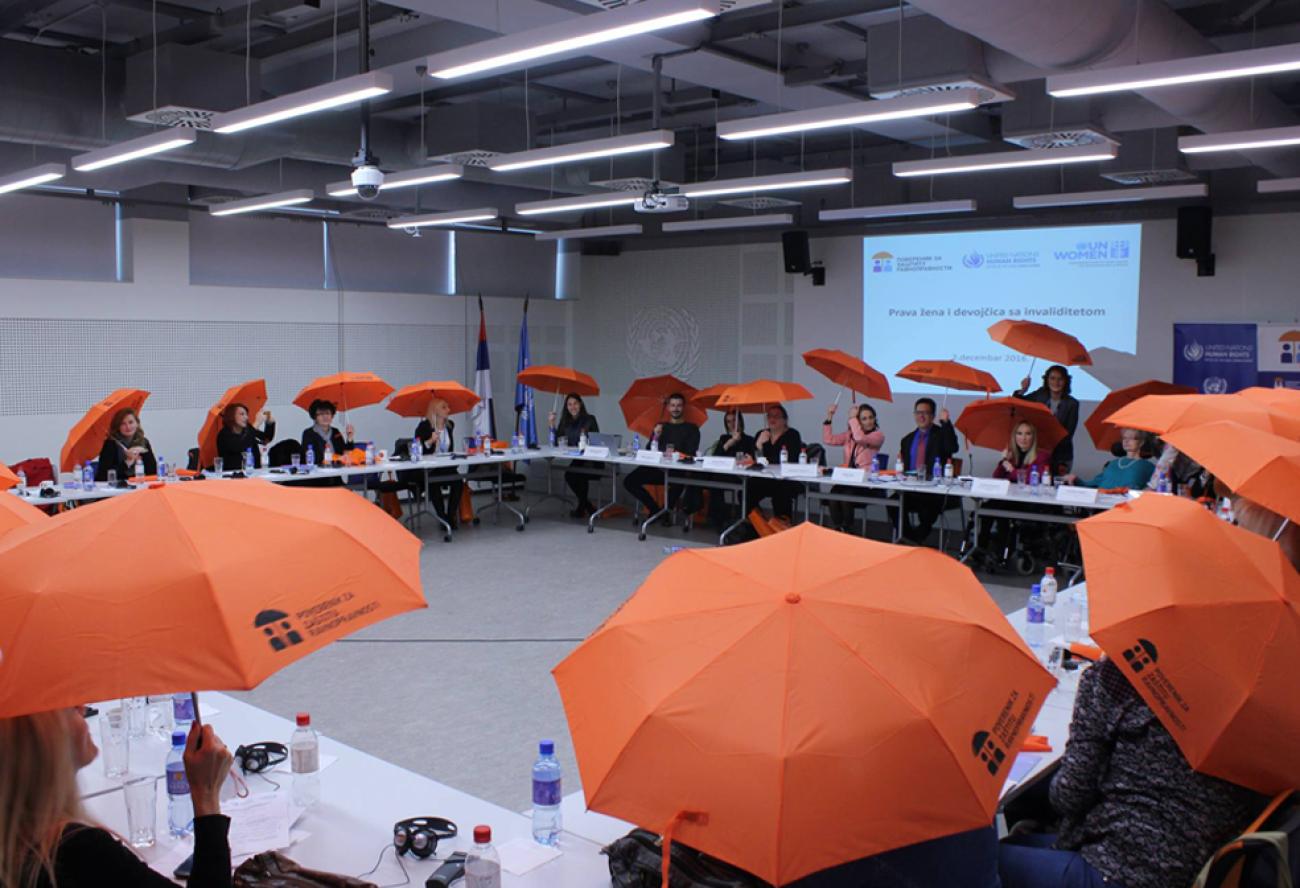Women and girls with disabilities frequently encounter a myriad of physical and social obstacles making them the victims of two-fold discrimination: as women and as persons with disabilities.
In a bid to take into account and to address their concerns, Commissioner for Protection of Equality, UN High Commissioner for Human Rights in Serbia and UN Women have organised a conference on the occasion of December 3 — the International Day of Persons With Disabilities.
At the opening of the conference, Commissioner Brankica Jankovic said that women and girls with disabilities are often invisible in public life, face obstacles in education, in health and social care; they are poorer and more unemployed than men with disabilities and are often victims of psychological, physical, sexual and all other forms of violence. “Women with disabilities have been denied their rights to marriage, sexuality and motherhood for a long time, just because of a prevailing stereotype that they were not able to fulfil “traditional women’s role,” said the Commissioner.
Milana Rikanovic, Head of UN Women in Serbia, added that the specific needs of women with disabilities have been invisible, both to the advocates of women’s rights and those of disability rights.
Assistant to the Commissioner Kosana Beker presented the General Comment No.3 on Article 6 of the UN Convention of Rights of Persons with Disabilities, related to women and girls with disabilities. The Article envisions that all state signatories, Serbia included, have committed to respect, protect and enable the exercise of rights of women with disabilities, to prevent multiplied discrimination and to provide adequate protection.
According to the 2011 census, people with disabilities make eight per cent of the Serbian population, 58.2 per cent of which are women. Gordana Rajkov from the Centre for Independent Life of Persons With Disabilities, stressed that as many as 81% girls with disabilities did not go to the elementary school.
Disability based discrimination is the third most common grounds for complaints. Since 2010, the institution of the Commissioner for the Protection of Equality received 390 complaints alleging disability based discrimination. Approximately, one third of those complaints were filed by women claiming discrimination on the grounds of disability, while men with disabilities filed complaints more often.





